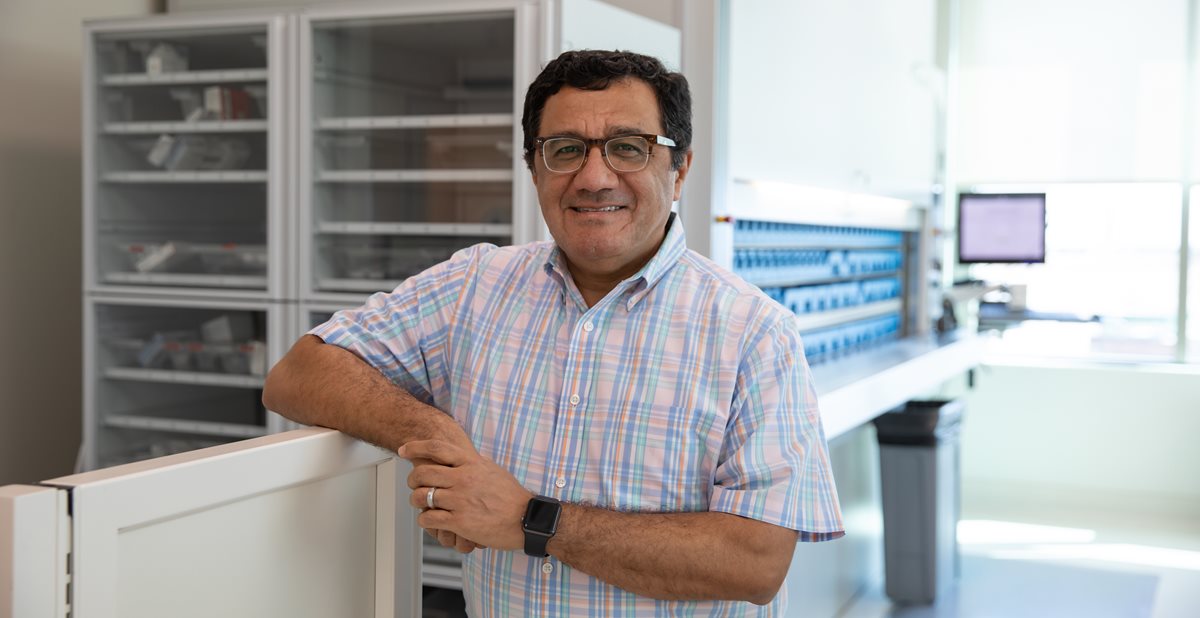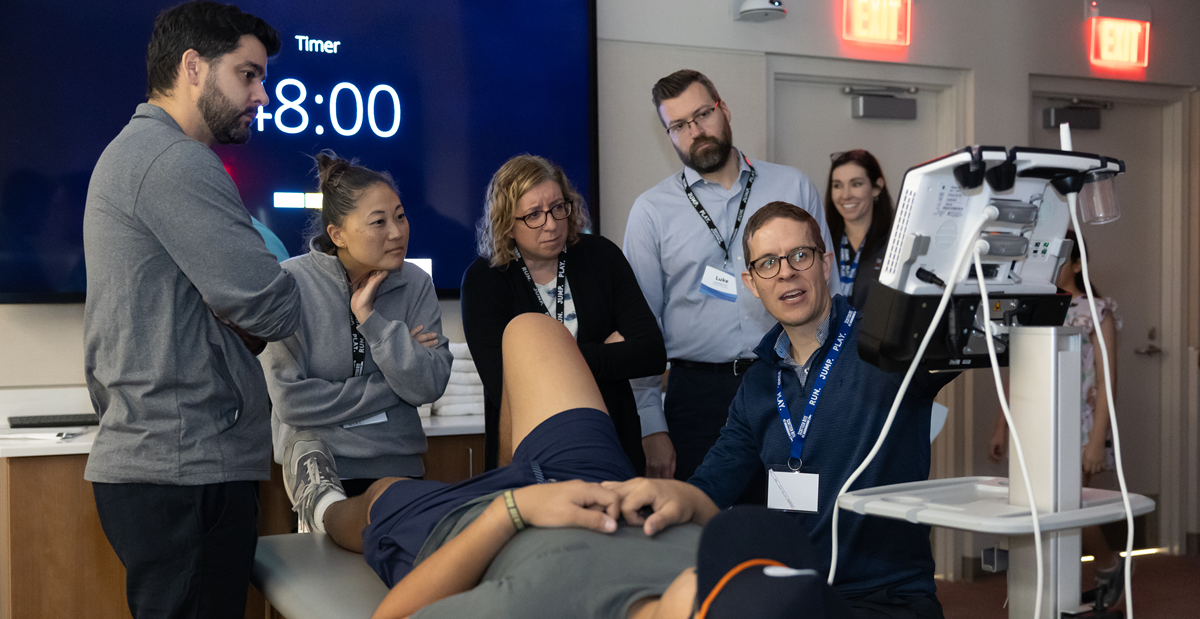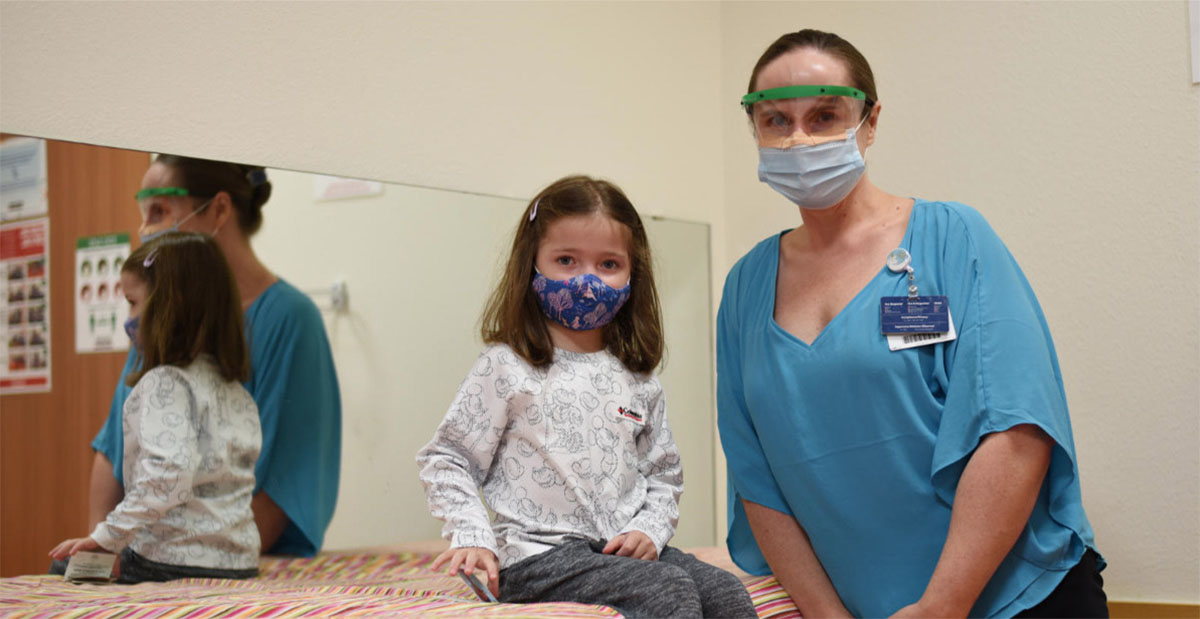
Nov 30, 2020 / Rheumatology
Get to Know our Staff: Lorien A. Nassi, M.D.
Where did you go to college? Medical school?
I went to Stanford University for undergrad, where I majored in psychology. At that time, I loved mathematical modeling. I attended UT Southwestern for medical school and have been connected with them ever since.
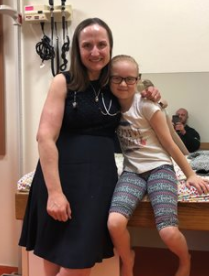 Why did you want to become a doctor? Have you always wanted to work in pediatrics?
Why did you want to become a doctor? Have you always wanted to work in pediatrics?
I wanted to become a doctor because I loved the combination of being able to solve puzzles using scientific knowledge, as well as the ability to impact people’s lives for the better. When I was in medical school, I actually thought that I wanted to do internal medicine. As a result, my first clinical rotation was internal medicine at the Dallas VA, where I discovered quickly that adults were definitely not for me. When I first started pediatrics, I thought that I wanted to do allergy/immunology. One of my mentors, at the time, rolled his eyes and said, “Do you really want to see snotty noses the rest of your life?” He suggested that I look into rheumatology instead. I have been in love with our patients, their diseases and the underlying pathogenesis ever since
Is there anything you want parents/kids to know about pediatric rheumatology?
If your child has a rheumatologic condition, I definitely recommend prompt treatment, as damage can occur very quickly. Conversely, I think that it is a great time to get treated for rheumatologic conditions, as we have so many new, wonderful medications that can make such a tremendous difference in our patients’ lives.
What led you to Scottish Rite for Children?
Honestly, I ended up here by serendipity. I married one of my medical school classmates, and we have both been in Dallas since that time. I started my fellowship in 2006 (rheumatology is a three-year fellowship) and have been a pediatric rheumatologist at Scottish Rite as well as on the UT Southwestern faculty since 2009.
What are your specialties?
I am technically board certified in both pediatrics and pediatric rheumatology, but people should definitely not ask me any general pediatrics questions! I have only ever actually practiced pediatric rheumatology.
How do you help your patients feel comfortable and confident?
I think that the approach depends on the age of the patient. I feel that our adolescent patients should have the opportunity to provide their own answers, in regard to their health history. I ask questions, and, as much as possible, actively participate in their plan of care. This type of early preparation is key for a successful transition to adult care, when that time comes.
For my younger patients, I am definitely not above bribery! I usually come in with stickers or other distractions and I love to try and turn the physical exam into a game for them.
What is your favorite part of your job?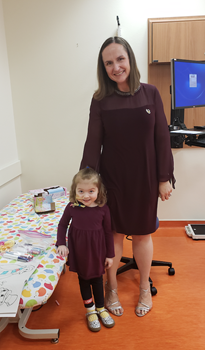
I love that as rheumatologists we get to follow our patients for long periods of time. I love watching the kids grow up and become independent. One of my favorite activities is camp! It is amazing to see our patients when they have the opportunity to be around others with similar rheumatic conditions. Many of our diagnoses are uncommon, so these kids have never met anyone else with the same or similar type of diagnosis. The look in their eyes when they realize that they aren’t the only kids who get injections, lab work, infusions, etc., really makes me love this experience year after year.
What was your first job?
I don’t know if it counts as a job, but during college, I volunteered as a tutor in East Palo Alto. It was a great experience to get exposure to a very different reality than mine. It really helped me prepare for my future work life as well, to understand the social barriers that many of our patients face.
Tell us something that might surprise us about you:
Well, I do have a brush with greatness story. When I was at Stanford, Stephen Hawking came for an invited lecture. As part of his visit, they took him on a campus tour, with one of his stops being the undergraduate physics labs. He stopped and chatted for a while with the students that were present. I feel quite confident in saying that I was so awestruck that I wasn’t even able to say my own name, yet still an amazing experience.
What is your favorite thing to do when you’re not working?
When I am not working, I value time with my family - my husband, our daughter and our dog. We love music of most genres, but especially jazz and classical. My daughter and I love hiking and cooking, my husband not so much, leaving us with ample mother/daughter time.
I went to Stanford University for undergrad, where I majored in psychology. At that time, I loved mathematical modeling. I attended UT Southwestern for medical school and have been connected with them ever since.
 Why did you want to become a doctor? Have you always wanted to work in pediatrics?
Why did you want to become a doctor? Have you always wanted to work in pediatrics? I wanted to become a doctor because I loved the combination of being able to solve puzzles using scientific knowledge, as well as the ability to impact people’s lives for the better. When I was in medical school, I actually thought that I wanted to do internal medicine. As a result, my first clinical rotation was internal medicine at the Dallas VA, where I discovered quickly that adults were definitely not for me. When I first started pediatrics, I thought that I wanted to do allergy/immunology. One of my mentors, at the time, rolled his eyes and said, “Do you really want to see snotty noses the rest of your life?” He suggested that I look into rheumatology instead. I have been in love with our patients, their diseases and the underlying pathogenesis ever since
Is there anything you want parents/kids to know about pediatric rheumatology?
If your child has a rheumatologic condition, I definitely recommend prompt treatment, as damage can occur very quickly. Conversely, I think that it is a great time to get treated for rheumatologic conditions, as we have so many new, wonderful medications that can make such a tremendous difference in our patients’ lives.
What led you to Scottish Rite for Children?
Honestly, I ended up here by serendipity. I married one of my medical school classmates, and we have both been in Dallas since that time. I started my fellowship in 2006 (rheumatology is a three-year fellowship) and have been a pediatric rheumatologist at Scottish Rite as well as on the UT Southwestern faculty since 2009.
What are your specialties?
I am technically board certified in both pediatrics and pediatric rheumatology, but people should definitely not ask me any general pediatrics questions! I have only ever actually practiced pediatric rheumatology.
How do you help your patients feel comfortable and confident?
I think that the approach depends on the age of the patient. I feel that our adolescent patients should have the opportunity to provide their own answers, in regard to their health history. I ask questions, and, as much as possible, actively participate in their plan of care. This type of early preparation is key for a successful transition to adult care, when that time comes.
For my younger patients, I am definitely not above bribery! I usually come in with stickers or other distractions and I love to try and turn the physical exam into a game for them.
What is your favorite part of your job?

I love that as rheumatologists we get to follow our patients for long periods of time. I love watching the kids grow up and become independent. One of my favorite activities is camp! It is amazing to see our patients when they have the opportunity to be around others with similar rheumatic conditions. Many of our diagnoses are uncommon, so these kids have never met anyone else with the same or similar type of diagnosis. The look in their eyes when they realize that they aren’t the only kids who get injections, lab work, infusions, etc., really makes me love this experience year after year.
What was your first job?
I don’t know if it counts as a job, but during college, I volunteered as a tutor in East Palo Alto. It was a great experience to get exposure to a very different reality than mine. It really helped me prepare for my future work life as well, to understand the social barriers that many of our patients face.
Tell us something that might surprise us about you:
Well, I do have a brush with greatness story. When I was at Stanford, Stephen Hawking came for an invited lecture. As part of his visit, they took him on a campus tour, with one of his stops being the undergraduate physics labs. He stopped and chatted for a while with the students that were present. I feel quite confident in saying that I was so awestruck that I wasn’t even able to say my own name, yet still an amazing experience.
What is your favorite thing to do when you’re not working?
When I am not working, I value time with my family - my husband, our daughter and our dog. We love music of most genres, but especially jazz and classical. My daughter and I love hiking and cooking, my husband not so much, leaving us with ample mother/daughter time.

